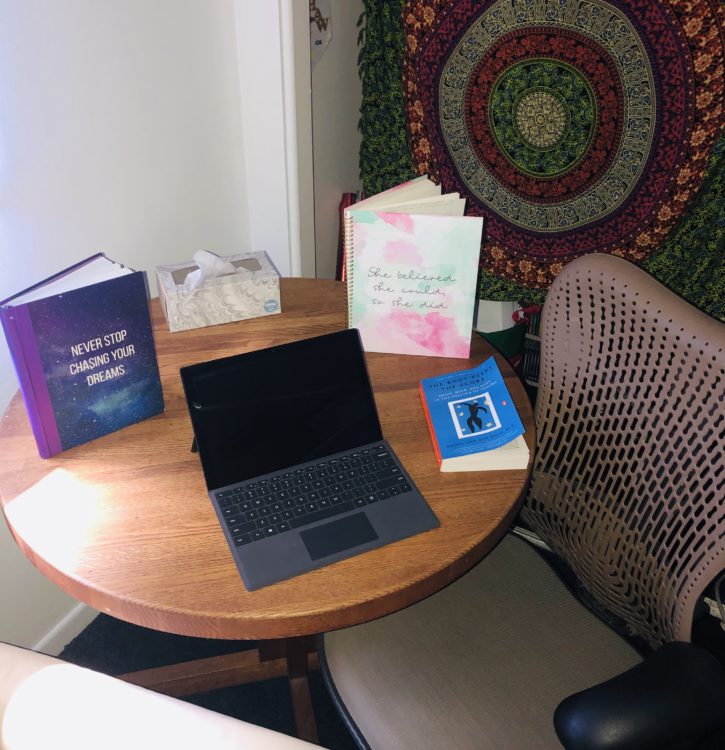I have a confession to make. Each day, I’ve been getting up at 5 a.m. After having my first cup of coffee, I go into my new office, and sit down in front of my computer to write this blog. In the last week, I’ve been very productive. I’ve written three different pieces.
• What is PTSD?
My writing has visibly improved since I began. Unfortunately, none of what I’ve written this week will be shown here. Why? I was lying to you.
I wasn’t consciously trying to deceive. I was just trying to entertain you. It’s my natural instinct. The fact of the matter is, there are holes in my story. Missing pieces.
It would never meet the burden of proof in a court of law. In an attempt to understand what happened to me as a child, I have filled in the blanks, to color in the commentary. All in the name of telling the tale.
Many times, my trauma memories don’t even make sense to me. Things are disjointed, seemingly random. Maybe that’s why I got into genealogy. Why I incessantly seek out documents and photographs. Or maybe, it’s the result of years of gaslighting. Telling my mother first, and then my father later about my sexual abuse at age 4, and not being believed. My father went so far as to say he investigated the incident and it never happened.
I was very proud of my last attempt at writing. I’m new to this, so I am still looking for approval and running things by my friend, writer, and fellow trauma survivor, J. Aaron Sanders. He is the one who encouraged me to start telling my story here. I connected with him on Twitter after reading his blog, 72 Hour Hold. I felt a kinship in his depiction of complex PTSD and how it affects our daily lives. I had never heard my own voice in the words of another trauma survivor, and it hit me like a bolt of lightning.

I talked to Aaron on the phone yesterday. He told me the writing was good. He also told me I owe my readers more than just a well told story. You deserve the opportunity to hear your voice in my words. My friend gave me that gift, and I’d like to pay it forward.
The truth is, I’m frightened. I am afraid of disappointing people. I am scared of embarrassing my family. I am still ashamed of some of the things I did to survive.
Dr. Bessel Vanderkolk, author of “The Body Keeps the Score,” says:
”The most important thing is forgiveness of yourself, for having been as vulnerable, as scared, as angry, as frozen as you were, and forgiving yourself for all the ways you’ve tried to survive.”
Somehow, I have got to find the strength within me to tell you every part of my story without shame. To forgive myself for everything I had to do, to survive.
My entire adult life, when I get in the proximity of success, I usually pull a stunt and destroy the whole thing. Like the time I was cast in one of the first Halloween Horror Nights at Universal Studios, and got completely drunk onstage in front of thousands of people, including the head of entertainment at Universal and my shocked talent agent. Or, years later when they gave me a second chance in Las Vegas, and I carelessly lost an $800 dress after getting intoxicated, again. Back then, before I sought healing, I just blamed everything on other people. I didn’t work for those agents and avoided those theme parks, so I didn’t have to take responsibility for my actions. It would be too painful for me to do that. I already felt like a piece of shit, and admitting I had a drinking problem, in my mind, would just solidify that notion. It was easier to just pretend that I wasn’t cut out for the theme park life. I was just too rock ‘n’ roll for them!
When you know better you do better.
Now I know that I have complex PTSD. My nervous system is always on high alert and looking for danger. Triggers live in my subconscious, like landmines in a field, waiting to be stepped on.
For years I used alcohol to combat the effects of my emotions raging out of control. It worked in the beginning, or at least I tell myself that.
If I’m completely honest, it gave me trouble right from the start. Without proper boundaries, and with unlimited cocktails, I re-traumatized myself again and again.
I have had to accept the fact that my brain has been injured. Fifty years ago, when the horrific events began, it attempted to shield me from reality. As a result my memories are in bits and pieces. Flashes of feelings, pictures that often don’t make sense to me — and I was there! After two years of EMDR therapy, I am able to understand some things, but many things remain a mystery, and that’s OK. My healing is a work in progress.
If you had a wonderful childhood, and I don’t mean this to be offensive, this blog is not for you. These words go out to the survivors of childhood trauma. I see you, I hear you. I understand your confusion. You are not alone. I know what it’s like to feel like you don’t belong on this planet, like maybe things would be better off if you never were born. Don’t believe those voices. We have a purpose.
Childhood trauma made me a member of a “college” that nobody would willingly attend, but that makes me uniquely qualified to help other trauma survivors, if I’m willing to be completely honest. My knee jerk reaction is, “ Of course!” I always try to tell the truth.
If I am embellishing a character or making assumptions of my own, I’m just trying to tell the story, right?
Wrong. I owe it to myself and to every trauma survivor out there to be as transparent and completely honest as I can possibly be. Right here, right now, I am making a promise to you:
I will do my very best to tell you what it’s like to live with childhood trauma, and heal from it as an adult. It will be messy at times. There will be mistakes. It won’t always be pretty. But if you stick with me, we can heal together.
I take a sip of my coffee, which is now cold, and begin again. This time, remembering exactly who I am talking to.
Getty image by Cosminxp Cosmin

